SIGnetwork: June 2022
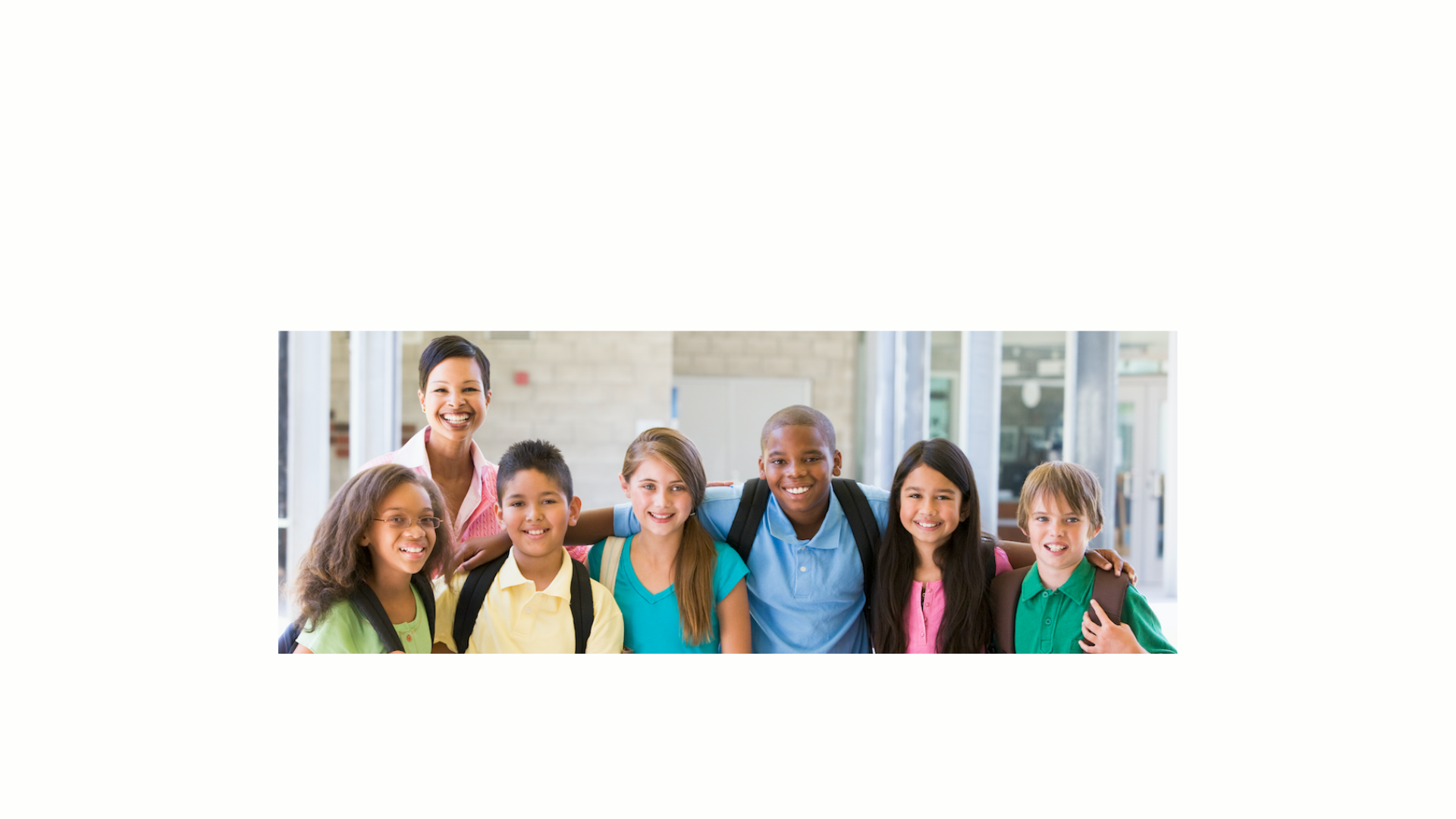
News You Can Use

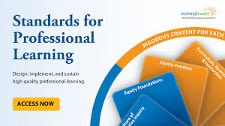
Learning Forward shared their new professional learning standards during the June Directors’ Webinar.
OSEP’s Project Directors’ and Leadership Conference will again be virtual.
Please register and mark your calendars for July 19-21.
Are you receiving the OSEP Update? Hear from the new OSEP Director, Valerie Williams, and receive the OSEP and Department of Education highlights, while you learn about great OSEP-funded resources and important data. Click here to subscribe.

New Competitions
Notice Inviting Applications (NIA) for FY 2022 for OSERS/OSEP: State Personnel Development Grants (SPDGs).
- Applications Available: Friday, June 10, 2022.
- Deadline for Transmittal of Applications: Monday, July 25, 2022.
- The NIA is available online at the following Federal Register link: 2022-12713.pdf (govinfo.gov)
- Contact person for the NIA and the 84.323A competition: Jennifer Coffey (Jennifer.Coffey@ed.gov).
- The application package for the 84.323A competition can be found on the Grants.gov website www.grants.gov
SPDG Success!

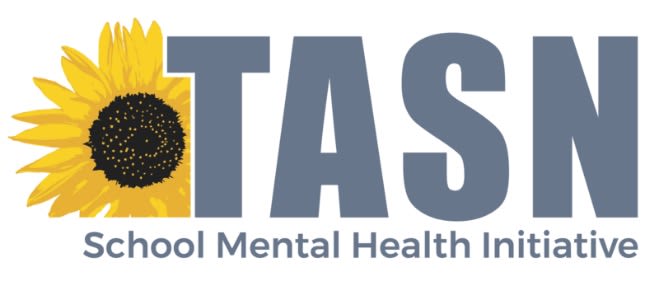
The Kansas SPDG funds Kansas School Mental Health (SMH), a professional development and coaching system to integrate school mental health and trauma-informed practices within a district’s tiered system of supports. District–Community Leadership Teams (DCLTs) are guided through a structured process that leverages school and community resources; facilitates collaboration among school districts and community partners, including mental health providers; and provides professional development, which improves outcomes for children/youth and families in alignment with the Kansas State Board of Education outcome of social-emotional growth.
An important aspect of successfully implementing mental health supports for students is the efficacy of the educators and community partners involved. Of the 74 DCLT members who responded to the Inclusive MTSS Implementation Scale: Mental Health Supplement, 95% reported knowing how to implement trauma-responsive practices and 100% responded that continued collaboration would improve mental health outcomes for children and youth. DCLTs translated these beliefs into practice, monitoring the progress of 30 students through a trauma-responsive support planning process, with 93% of students making progress in their targeted areas.
Improving Professional Learning

New Report Finds Student Test Scores Improved After Teachers Received Individualized, Video-Based Coaching
A new study suggests that giving teachers individualized coaching based on videos of their instruction can help them become more effective in the classroom. Professional coaches—rather than district or school staff—gave teachers feedback after observing these videos. Coaches provided feedback in highly structured “cycles” that involved selecting short video clips from a teacher’s recorded lesson, providing written feedback to help the teacher reflect on the clips, and holding a videoconference with the teacher to discuss the feedback.
This study sheds new light on how much coaching is needed to improve teachers’ effectiveness. The research team tested two versions of coaching over a single school year—one provided five cycles of coaching, and another provided eight.
Key findings from the project, conducted for the Institute of Education Sciences, include the following:
- Five cycles of video-based coaching for teachers improved student achievement in English language arts by an amount equivalent to three percentile points on state assessments or about two additional months of learning on average. Students taught by teachers who received five cycles of coaching had higher test scores in English language arts than students taught by teachers who did not receive the coaching. Although the differences in math scores were similar in size, the study could not definitively conclude that the coaching improved math achievement.
- Eight cycles of coaching were not effective, perhaps due to time constraints. Students whose teachers received eight cycles of coaching had math and English language arts test scores similar to those of students whose teachers did not receive the coaching. The eight-cycle group had less time between coaching cycles than the five-cycle group did. This may have reduced the amount of time teachers had during each cycle to work on the practices being addressed, potentially limiting the coaching’s effects.
- Coaching affected the type of feedback teachers received. Compared with their peers who did not receive coaching, teachers who did receive coaching were more likely to report receiving feedback that focused on specific teaching practices and gave them a chance to observe and reflect on their teaching. However, the study did not detect improvements in teachers’ practices.
Improving teachers’ effectiveness is key to boosting student achievement. Our study suggests individualized, video-based coaching is a cost-effective way to help students by supporting their teachers.
-Jeffrey Max, a principal researcher at Mathematic
Researchers on this study randomly divided 107 elementary schools into three groups: one that received five cycles of coaching, one that received eight cycles, and one that continued its usual strategies for supporting teachers. The study compared teachers’ experiences and students’ achievement across the three groups to determine the effectiveness of the two versions of the coaching.
This document provides additional details on the coaching provided for the study, the approach to carrying out the study, and the findings presented in the report.
View, download, and print the report as a PDF file (1.4 MB)
View, download, and print the highlights as a PDF file (88 kB)

Developing Effective Principals: What Kind of Learning Matters? The Wallace Foundation
Linda Darling-Hammond, Marjorie E. Wechsler, Stephanie Levin, Melanie Leung-Gagné and Steve Tozer from the Learning Policy Institute
High-quality principal development is linked to better outcomes for principals, teachers and students, but access to it varies by state and school poverty levels. Policy change can help.
The report finds that high-quality pre-service preparation programs have common elements:
- Rigorous recruitment of candidates into the program;
- Close school district-university partnerships;
- Groupings of enrollees into cohorts;
- Experiences where candidates apply what they learn, guided by experienced mentors or coaches; and
- A focus on important content, with the five most important areas being leading instruction, managing change, developing people, shaping a positive school culture and meeting the needs of diverse learners.
- Mentoring and coaching were influential and valuable for current principals, along with collegial learning networks and applied learning.
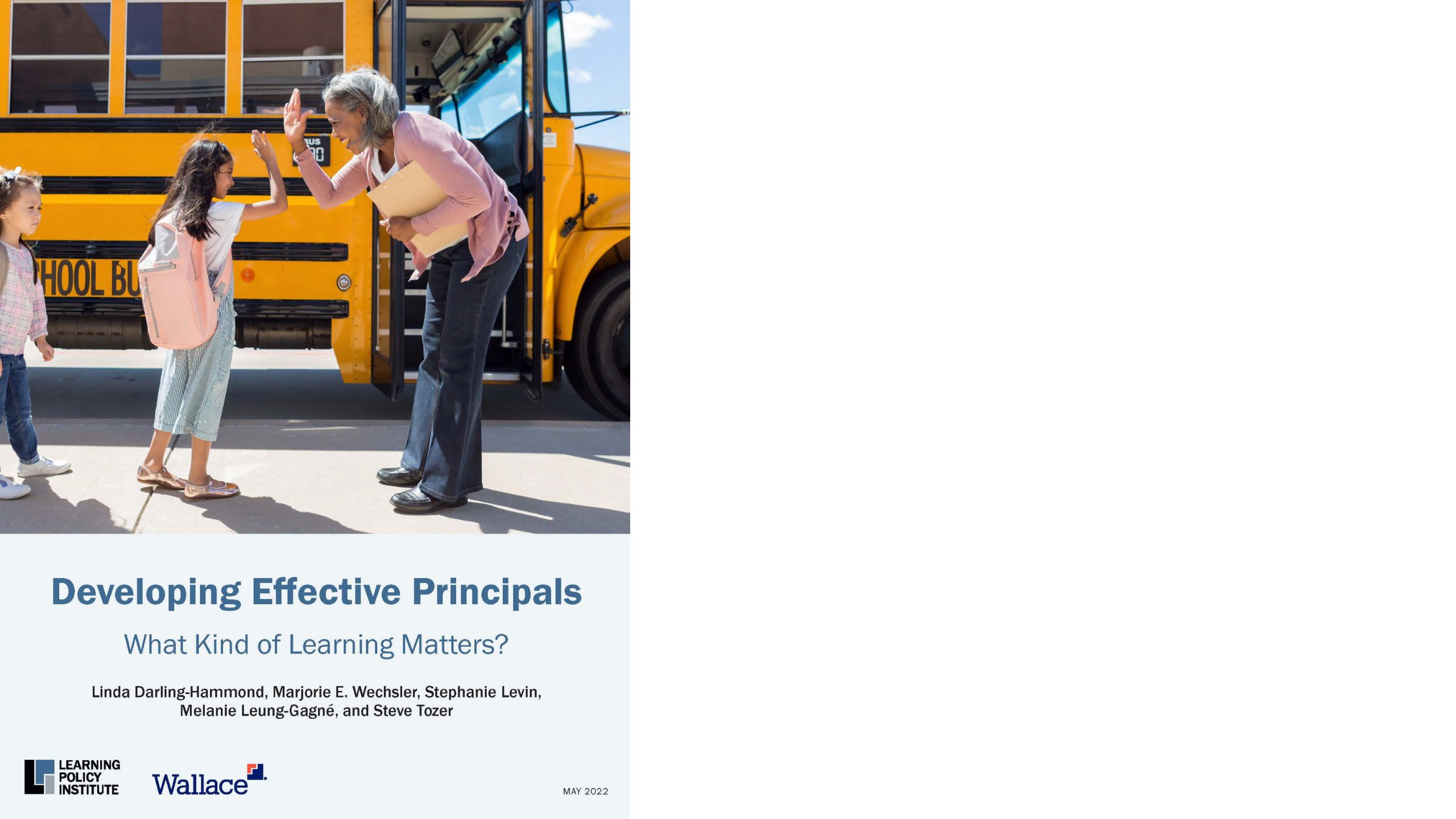
Research Roundup

How Instructional Materials Are Used and Supported in U.S. K–12 Classrooms
Findings from the 2019 American Instructional Resources Survey
Improving Principal Quality to Increase Teacher Retention
Principals can establish collaborative and trusting environments for teachers. This can be accomplished by engaging in instructionally - focused interactions with teachers, building a productive school climate, facilitating collaboration among teachers, and managing personnel and resources strategically. Recent research shows that principals engaging in these practices are able to positively impact school working conditions, leading to better retention of teachers, particularly effective teachers.
Evaluators' Corner

Spotlight on OSEP/TA

Effective Implementation Capacity to Impact Change Within State Education Systems to Support Students With Disabilities
Caryn Ward, Tanya Ihlo, Kathleen Ryan Jackson, Sophia Farmer, 2022
Supporting Students in Poverty with High-Impact Instructional Strategies Toolkit
Comprehensive Center Network
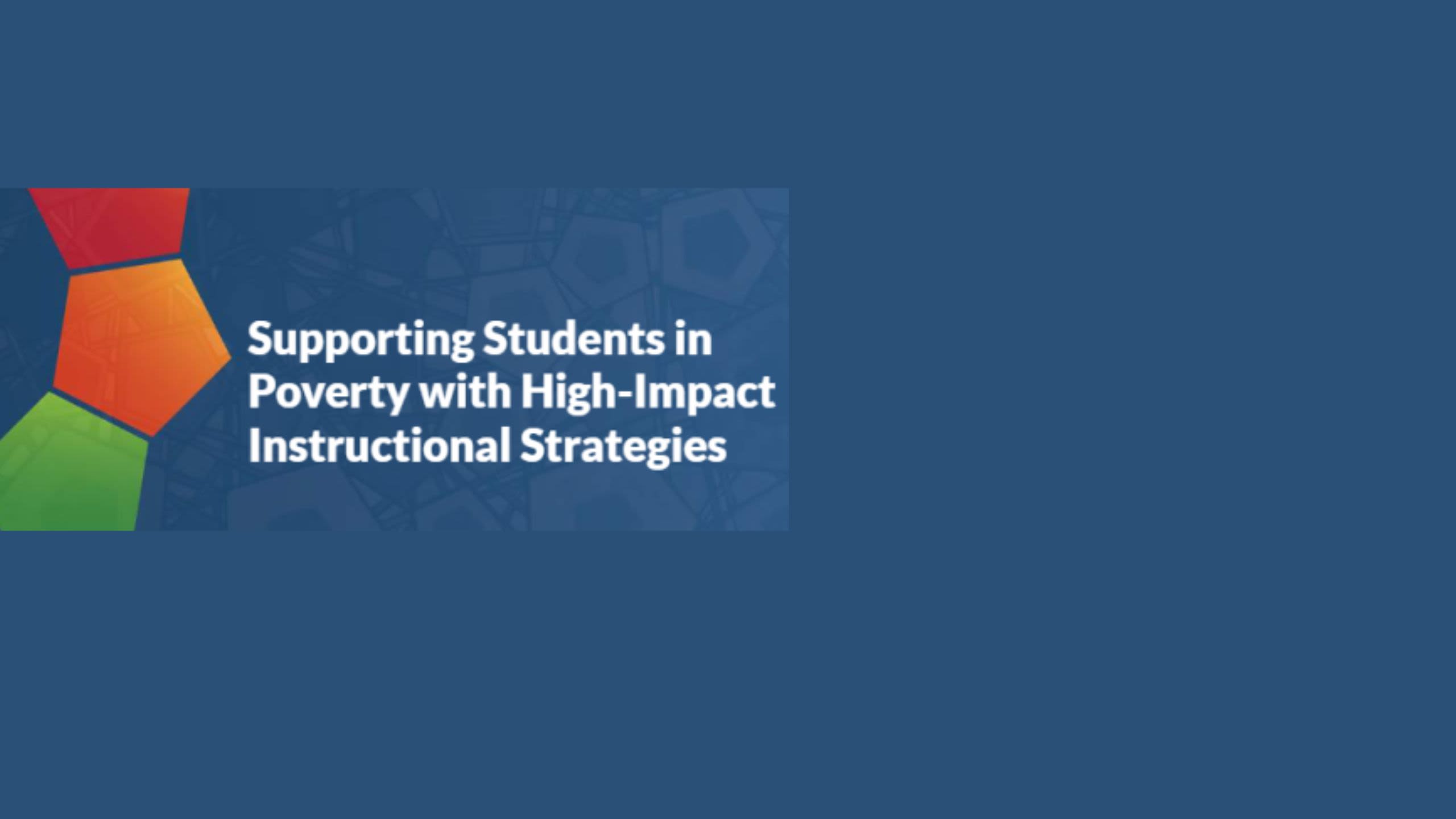
Podcasts of the Month

In this episode, Brené Brown talks with Priya Parker, a master facilitator, strategic advisor, and the author of The Art of Gathering: How We Meet and Why it Matters. We dig into what it means to come together, why connection requires intention, and the often-invisible structures inside our most meaningful gatherings.


